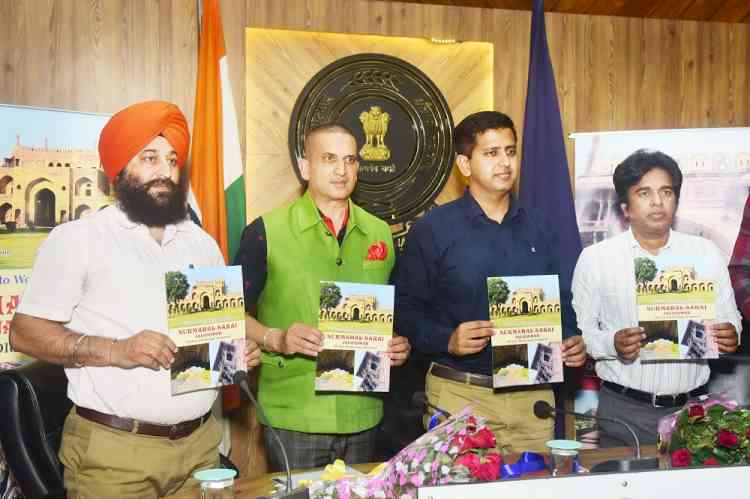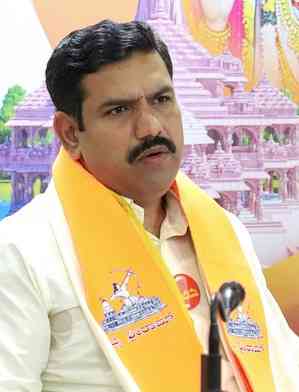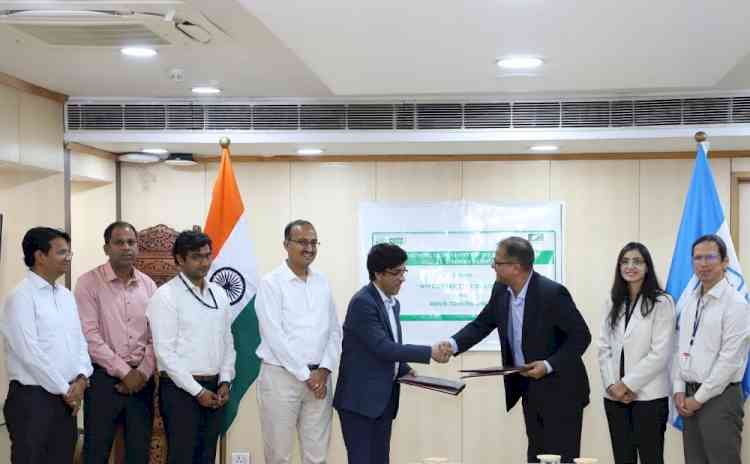The Himachal and Punjab Gorkha Association to celebrate 100th year of its formation on Oct 27-29
Author(s): Arvind SharmaAuthor. Dharamshala, October 25, 2016: The Himachal and Punjab Gorkha Association is celebrating the 100th year of its formation at Gorkha Bhawan Dharamshala from 27th to 29th October . The association which was...


Author.
Dharamshala, October 25, 2016: The Himachal and Punjab Gorkha Association is celebrating the 100th year of its formation at Gorkha Bhawan Dharamshala from 27th to 29th October .
The association which was established on 29th October 1916 by Hon’ry Capt Madho Singh Rana to assist war widows and their families. The Gorkha is a marshal community and brought lots of laurels to the Indian Army and the forces of other countries including British Army, so why the brave Gorkhas are always considered the fittest soldiers . Since the independence of India in 1947, as per the terms of the Britain–India–Nepal Tripartite Agreement, six Gorkha regiments, formerly part of the British Indian Army, became part of the Indian Army and have served ever since. The troops are ethnic Nepali Gurkhas of Nepal and ethnic Indian Gorkhas of India.
The first award was made in 1858 to a British officer of the Gurkhas, John Tytler, during the campaigns that followed the Indian Rebellion of 1857, while the first award to a native Gurkha, Kulbir Thapa, was in 1915 during the First World War. When the Victoria Cross was initially established, Gurkhas, along with all other native troops of the British East India Company Army or the British Indian Army, were not eligible for the decoration and as such, until 1911, all of the Gurkha recipients of the award were British officers who were attached to Gurkha Regiments. Until that time the highest award that Gurkhas were eligible for was the Indian Order of Merit.
Since 1911 however, of the 16 VCs awarded to men serving with Gurkha regiments, 13 have been bestowed upon native Gurkhas. The most recent award was made in 1965 to Rambahadur Limbu, during the Indonesia–Malaysia confrontation. Along with the Royal Green Jackets, the Gurkha regiments are among the most heavily decorated Commonwealth units.
In 1950, when India became a republic, Gurkhas serving in the Gurkha regiments of the Indian Army lost their eligibility for the Victoria Cross and they are now covered under the separate Indian honours system. Under this system the Param Vir Chakra (PVC), which is India's highest military decoration for valour,[7] is considered to be equivalent to the Victoria Cross. As such only those serving in the Gurkha units of the British Army remain eligible for the Victoria Cross.[2]
One of the organizer R S Rana said that the three day Centenary function shall have CM Vir Bhadra Singh as the Chief Guest on the concluding day, with Local Minister of Urban development Sudhir Sharma . The other prominent guests shall be National Design Editor (The Economic times, Business Today and the Business World) Ms Jyoti Thapa Mani, Ms Rajni Vyas Mayor MC Dharamshala and many more.
Rana said , “ ex cabinet minister government of India Chandresh Kumari will inaugurate the three day celebrations on 27th October.
The Indian Gorkhas are mistakenly identified as Nepali people, but actually Indian Gorkhas are the Nepali-speaking Indian citizens. The term "Indian Gorkha" is used to differentiate between Gorkhas who are Indian citizens and Nepalese citizens who are allowed to stay in India as per the Indo-Nepal Treaty of Peace and Friendship (1950). Indian Gorkhas are citizens of India as per the Gazette notification of the Government of India on the issue of citizenship of the Gorkhas of India.
The historical First Gorkha regiment of the Indian army has raised at Subathu Cantonment, which is the birth place of the First Gorkha Rifles in Himachal Pradesh. As of now First Gorkha Regiment has five battalions and the new battalion would be known as 6/1GR (6/1 Gorkha Rifles).First Gorkha regiment was raised on April 24, 1815 at Subathu Cantonment.
Some Notable Indian Gorkhas, who captured some key positions in India.
Nar Bahadur Bhandari – Former Chief Minister of Sikkim
Pawan Kumar Chamling – Chief Minister of Sikkim
Damber Singh Gurung - Indian Gorkha representative in the Constituent Assembly of India
Ram Singh Thakuri (resident of Dharamshala) – Music composer of Indian national anthem
Durga Malla (resident of Dharamshala )– Indian freedom fighter
Mahendra P. Lama - Founding vice chancellor of Sikkim University
Bharat Chettri – Hockey player (former captain of Indian hockey team)
Nirmal Chettri – Indian footballer
Sunil Chhetri – Indian footballer (Arjuna Award 2011)
Binod Pradhan – Bollywood cinematographer
Louis Banks – Jazz musician
Ranjit Gazmer – Indian film musician
Prajwal Parajuly - English language writer and novelist
Trilochan Pokhrel - Indian freedom fighter
Sanju Pradhan – Indian Footballer
Tarundeep Rai – Archer (Asian Games 2011 silver medalist; Arjuna Award 2005)
Soumya Rai - Dancer
Mala Sinha – Indian Bollywood actress of Nepali and Bengali language
Pratibha Sinha - Bollywood Indian actress (daughter of actress Mala Sinha and Nepali actor C.P. Lohani)
Shiva Thapa – Boxer (youngest Indian boxer to qualify for the Olympic Games)
Dhan Singh Thapa - Param Vir Chakra recipient
Hira Devi Waiba - Nepali language folk singer
Prashant Tamang - Singer/actor, winner of Indian Idol Season 3
Bipul Chettri - Nepali singer/composer
Rangu Souriya - Social worker
Gopi Kishan - Classical dancer, Padmashree Award winner

 cityairnews
cityairnews 
















